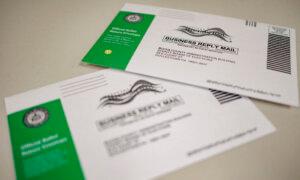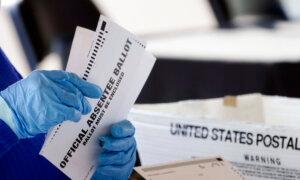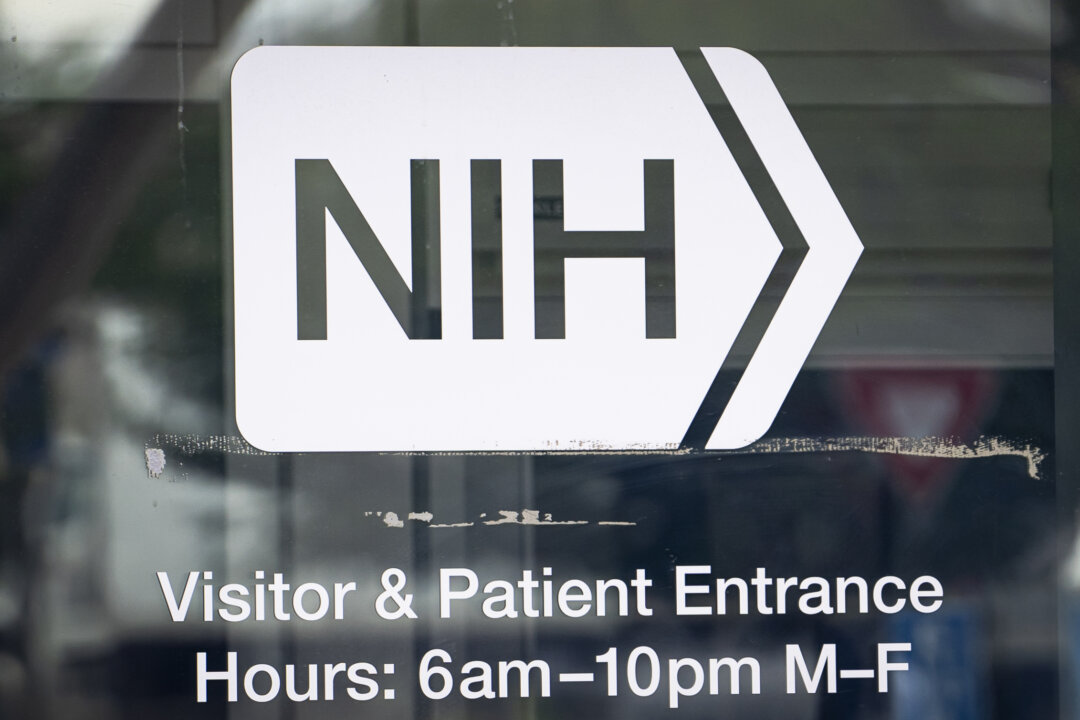Voters who provide their necessary verification information within the 15 days will have their votes counted.
A North Carolina appeals court said on April 4 that contested ballots in a close race between two candidates for the state Supreme Court must be verified to be counted.
The 2–1 decision, which sided with Republican Jefferson Griffin, ruled that what are likely tens of thousands of ballots were wrongly allowed in the final count.
It gives voters whose ballots have been challenged 15 business days to provide the necessary verifying information, such as driver’s license or Social Security numbers, to prove their voter eligibility.
Griffin is trailing incumbent Democrat Justice Allison Riggs by fewer than 1,000 votes, and Riggs and the Democratic Party declared victory months ago following vote counts that put her in the lead.
He has challenged the validity of more than 65,000 ballots, alleging voters did not provide the necessary identification information to prove their eligibility to vote when registering.
His lawsuit has halted the state elections board from certifying Riggs as the winner five months after Election Day.
While recounts have confirmed the Democrat’s lead, Griffin contends the contested ballots, as well as an additional 5,500 ballots from military and overseas voters who allegedly didn’t present a photo ID when voting, are invalid.
Voters who provide their necessary verification information within 15 days will have their votes counted, while anyone who does not will have their ballots thrown out, according to the ruling.
The court said the state elections board was wrong when it dismissed Griffin’s objections in December.
Riggs said she would appeal the decision and suggested it would go to the state Supreme Court.
Griffin currently sits on the state Court of Appeals and recused himself from matters related to his case, which contested the affected ballots across three categories.
April 4’s opinion ruled that the state elections board should have determined the contested ballots to be left uncounted because they did not comply with state law or the state constitution.
The court’s decision also reverses a ruling from a trial judge who upheld the board’s actions in February.
“Free elections under ... the North Carolina Constitution include the right to an accurate counting of votes,” said the opinion backed by Judges John Tyson and Fred Gore, who are both Republicans.
“Griffin has a legal right to inquire into this outcome through the statutorily-enacted and postelection procedures available to him.”
The most substantial category of ballots Griffin contested were cast by voters whose registration paperwork lacked a driver’s license number, or the last four digits of their Social Security numbers—which has been a requirement since 2004.
Griffin’s lawyers argued that the state elections board failed to enforce the requirement properly for years.
The second category was of military and overseas voters, likely in the thousands, who failed to provide copies of their photo identification or ID exception forms with their ballots, another state requirement.
Anyone within the first two categories will get 15 business days to provide the missing information or photo ID, in which their ballots will still count, the ruling said.
A third category affects possibly hundreds of overseas voters who have never lived in the United States.
According to the appeals court, their ballots cannot be counted due to violations of state residency law.
The third appeals court judge, Toby Hampson, a Democrat, wrote a dissenting opinion in which he said Griffin failed to identify a single voter who was ineligible to vote in last year’s election under the state’s laws regulating the election.
Rigg’s lawyers and the state board have said the ballots were lawful and argued that state election law applied to years of elections can’t be changed retroactively.
Granting Griffin’s “indiscriminate efforts to call into doubt the votes of tens of thousands of otherwise eligible voters, without any showing any challenged voter was disqualified under existing law from voting is to elevate speculation and surmise over evidence and reason,” Hampson wrote.
Griffin’s lawyers said he will prevail if the challenged unlawful ballots are left out.
Rigg’s side argues the ballots challenged on the identification ruling mostly came from Democrat-leaning areas.
It’s not clear how many voters will participate in verifying their contested ballots.
“We stand by the process of allowing the State Board a second chance to do its job and ensure that only eligible voters cast ballots in our elections,” Griffin’s campaign committee said in a statement praising the ruling.
Riggs, in a statement, called the ruling a “deeply misinformed decision that threatens to disenfranchise more than 65,000 lawful voters and sets a dangerous precedent, allowing disappointed politicians to thwart the will of the people.”
The Associated Press contributed to this report.











